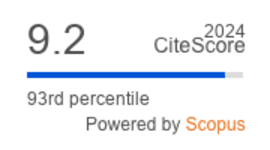Lutein Suppresses the Maturation and Function of Bone Marrow-Derived Dendritic Cells
DOI:
https://doi.org/10.36877/pmmb.a0000441Abstract
Lutein, nonivamide, and baicalein, organic compounds found in a variety of plants, are known to exert anti-inflammatory effects in animal cells. Dendritic cells (DCs) are professional antigen-presenting cells (APCs) and link the innate and adaptive immune systems. DCs can be directed into fully mature APCs by exposure to bacterial or viral components, resulting in inflammatory situations. The manipulation of DC maturation provides a strategy for the treatment of allergic and inflammatory diseases. In this study, we evaluated the effects of lutein, nonivamide, and baicalein on the maturation and activation of DCs. Compared to nonivamide and baicalein, lutein significantly and dose-dependently reduced the levels of maturation-associated cell surface markers, including CD40, co-stimulatory molecule CD86, and major histocompatibility complex class II (I-Ab) molecule in lipopolysaccharide (LPS)-stimulated DCs. Lutein also decreased IL-12p40 and IL-6 gene expression and secretion in LPS-stimulated DCs. Furthermore, lutein significantly enhanced the endocytic ability of LPS-stimulated DCs. These results demonstrated that lutein may exhibit immunosuppressive activity by inhibiting the phenotypic and functional maturation of DCs, and provide new evidence for the value of lutein in the search for novel therapeutic agents in the treatment of inflammatory diseases.
Downloads
Published
How to Cite
Issue
Section
License
Copyright (c) 2024 Seulah Choi, Tae Sung Kim, Hui Xuan Lim

This work is licensed under a Creative Commons Attribution-NonCommercial 4.0 International License.
Author(s) shall retain the copyright of their work and grant the Journal/Publisher right for the first publication with the work simultaneously licensed under:
Creative Commons Attribution-NonCommercial 4.0 International (CC BY-NC 4.0). This license allows for the copying, distribution and transmission of the work, provided the correct attribution of the original creator is stated. Adaptation and remixing are also permitted.

This broad license intends to facilitate free access to, as well as the unrestricted reuse of, original works of all types for non-commercial purposes.
The author(s) permits HH Publisher to publish this article that has not been submitted elsewhere.



.png)

.jpg)
